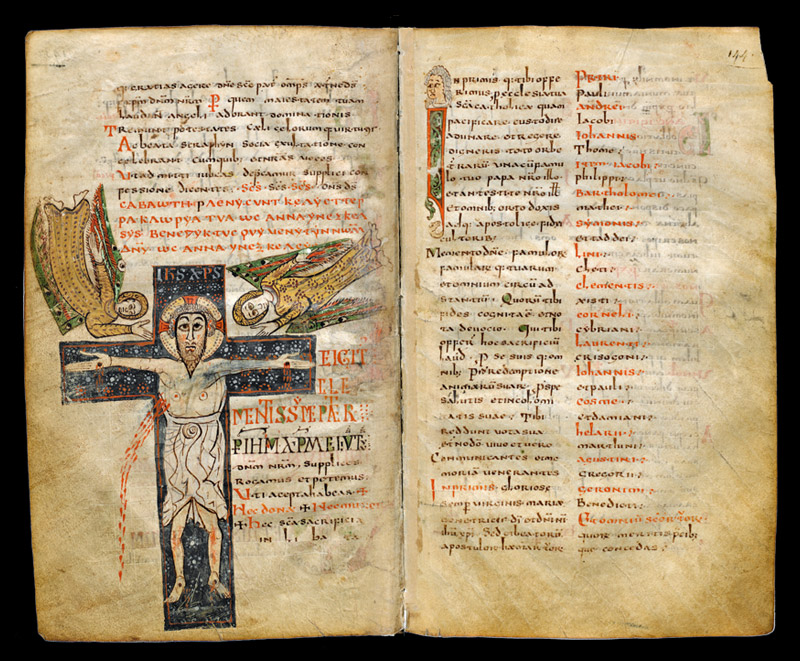
Until the invention of the printing press in the mid-15th century, all books in the Western world were written by hand, which meant that no two copies of a text were ever exactly alike.
"If you wrote a poem, treatise, chronicle or any other work, once it left your hands, you had no control over it; its form was fundamentally unstable," said Josh Smith, assistant professor of English and director of the Medieval and Renaissance Studies Program. Scribes could introduce errors, pair your text with one you hated, or insert their own improvements, he added. Many texts were lavishly decorated with illuminated letters and jewel-like illustrations that also vary from one manuscript to another.
Smith will explore medieval manuscript culture and its connection to current internet technology in a public lecture, "Manuscript," at 5:15 p.m. Wednesday, Sept. 6, in Gearhart Hall Auditorium. His lecture serves as a preview for the Honors College Signature Seminar, Manuscript, that Smith will offer in Spring 2018.
Some of the main questions to be explored in the course, which Smith will touch on in his lecture, include:
- Is the modern desire for a pure text (e.g. that of the Bible) anachronistic, since no two copies were alike until the printing press?
- Is the rise of internet culture in some ways a return to manuscript culture?
- How do different technologies affect reading? Is reading on a Kindle a fundamentally different experience from reading a medieval book?
Honors students enrolled in the course will touch and analyze manuscripts from the University Libraries' Special Collections. They will learn how manuscripts were made, using clay, papyrus and animal skin, as well as how pre-modern books were bound together.
The course will cover masterpieces ranging from The Book of Kells to the Codex Amiatinus, an early Biblical manuscript, and also take a look at manuscript and print culture outside of the West. The students will also examine modern manuscripts, such as drafts and notes produced by Pulitzer Prize winner John Gould Fletcher, an Arkansas native.
Josh Smith's research focuses on the multilingual literature of medieval Britain, especially Anglo-Welsh literary exchange. Smith received a prestigious, three-year Scholars of Critical Bibliography Fellowship from the Mellon Foundation in 2015, which provided seed money for the recent Bible Craft symposium and the 2016 Mellon Symposium on Manuscripts and Rare Books, both hosted in the Honors College wing of Gearhart Hall. His book Walter Map and the Matter of Britain is available from the University of Pennsylvania Press.
Next spring, in addition to Smith's course, the Honors College will offer Signature Seminars on the Internet, taught by communication professor Stephanie Schulte, and Soccer, taught by history professor Todd Cleveland. The Signature Seminars, designated HNRC 4013H in the university's Catalog of Studies, focus on a wide range of cutting-edge topics, including cancer, race, aging, water, profit and Jesus. Honors students must apply to participate in these courses, and those selected will be designated Dean's Signature Scholars. The deadline to apply is Sunday, Oct. 15.
Contacts
Kendall Curlee, director of communications
Honors College
479-575-2024, kcurlee@uark.edu